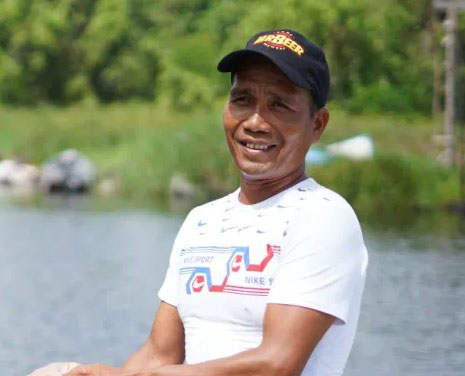The Village Council of Warapoka is hoping to impose a two-week lockdown on the indigenous community, which now accounts for the highest number of active COVID-19 cases in Region One.
But according to Toshao Alan Henry, the village will need assistance in implementing the measure.
Statistics provided by the Ministry of Health (MoH) revealed that Warapoka has recorded a total of 21 COVID-19 cases thus far, 18 of which are active. With the recent decline in active cases in Kwebanna, Warapoka now has the highest number of active cases in the region.
Henry told Stabroek News that the first two cases were detected more than two weeks ago and since then doctors have gone into the community to do testing on three occasions, which uncovered the positive COVID-19 cases.
He noted that the community has not recorded any COVID-19 deaths so far but added that the village council is hoping to impose a two-week lockdown as soon as possible to prevent a further spread of the virus. He reported that they had contacted the Regional Health Officer (RHO) of Region One and are now awaiting advice on the way forward.
Henry said the council believes that it is necessary to impose stringent measures before the situation gets out of control in the village. Henry revealed that the council observed the COVID-19 situation in nearby communities, such as Kwebanna and Santa Rosa, and noticed how those communities were able to regain some measure of control after a lockdown was imposed. He said the effectiveness of those lockdowns, especially in Kwebanna, is what prompted them to make the decision.
Henry added that he knows a lockdown will not be easy on residents and so he is requesting assistance from anybody willing to contribute, especially since sanitisation and cleaning supplies have been very limited in the community.
“We don’t want to wait for people to start dying before we act. I don’t want my people to die and we are very certain that a lockdown would be effective,” he further stated.
Henry also noted that since the first case was recorded in Guyana, the village council and most residents have been adhering to all recommended precautionary measures. He said that they have constructed a checkpoint at one of the entry points for the community that is being manned by members of the council who checks the temperature of everyone that enters the community. In addition, the Toshao says, the council has been distributing home-made masks to all residents of the community.
Venezuelan immigrants
Reiterating his plea for assistance, Henry stated that he is not only concerned about residents of the communities but also immigrant families from Venezuela who have no proper houses or farms to sustain themselves.
He noted that the council has been doing whatever it can to assist those families since their arrival more than a year ago. However, he said at this stage it is difficult for even residents to sustain themselves.
Henry subsequently revealed that one of the families affected by the virus from Warapoka is an immigrant family. “This is a very sad situation and I know that it is very hard for them because they do not have a farm or any proper shelter,” he commented before adding that the family is being isolated at the Kumaka District Hospital (KDH) in Santa Rosa.
The Toshao added that while he is unclear where persons might have contracted the virus, he believes that it was contracted in Santa Rosa as it is the main hub for the Moruca sub-district.
“We are all worried here. We all know that this virus is dangerous and that’s why we think it is sensible to put the community on a lockdown,” he said.
Region One has recorded at least 808 confirmed COVID-19 cases, 64 of which are active. The active cases are distributed among 22 communities in the region.
Prior to Warapoka having the highest number of active COVID-19 cases, Kwebanna was the hotspot and two persons from the community who were infected with the community died. A lockdown was imposed to prevent further spread of the disease and the Toshao of the community, Paul Pierre, told Stabroek News that it resulted in a sharp decline in COVID-19 cases.
Up to yesterday, Kwebanna only had four active COVID-19 cases.





